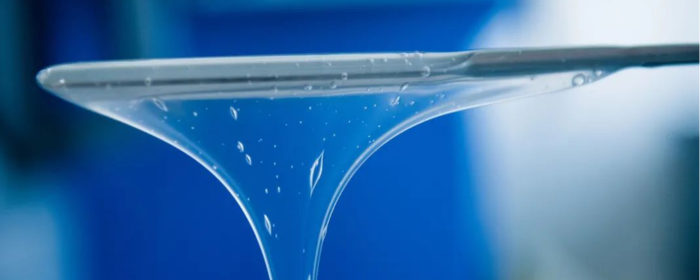
Hyaluronic acid (HA), internationally known as a Natural Moisturizing Factor (NMF), is currently one of the most effective moisturizing substances used in cosmetics. It is widely found in creams, lotions, toners, serums, cleansers, bath products, shampoos, mousses, lipsticks, and other cosmetic products. As a common ingredient in skincare and cosmetic products, concerns about its safety are valid.
Suppose you’ve come across articles online suggesting that HA can promote cancer cell growth. In that case, it’s important to note that this view is not entirely accurate, as it confuses the distinction between endogenous and exogenous hyaluronic acid.
There is growing evidence that endogenous low-molecular-weight HA is positively correlated with higher malignancy in tumors, whereas exogenous low-molecular-weight HA has shown anti-tumor properties.
Endogenous Hyaluronic Acid (Endogenous HA)
Endogenous HA is naturally produced by the human body. It is well-known that HA is a naturally occurring substance found in the skin, joints, and eye tissues. It plays a critical role in maintaining tissue hydration, lubrication, and structural integrity.
Under normal physiological conditions, endogenous HA helps maintain normal tissue functions such as skin elasticity and joint lubrication. However, under certain pathological conditions (such as inflammation or cancer), endogenous HA can degrade into low-molecular-weight HA (LMW-HA), which is associated with tumor progression and malignancy.
This is primarily because LMW-HA can bind to specific cell surface receptors (such as CD44 and RHAMM), promoting tumor cell migration, invasion, and proliferation. Additionally, it may contribute to remodeling the tumor microenvironment, supporting tumor growth through angiogenesis. Hence, in certain cases, endogenous LMW-HA may exacerbate tumor progression.
Exogenous Hyaluronic Acid (Exogenous HA)
Exogenous HA is introduced into the body externally, either through injection, oral intake, or topical application, commonly used in beauty treatments, arthritis therapy, and other medical applications.
Exogenous HA can have different effects depending on its molecular weight. For example, high-molecular-weight HA (HMW-HA) typically exhibits anti-inflammatory properties and promotes tissue repair. On the other hand, low-molecular-weight HA has shown anti-tumor effects in certain cases. It can induce immune responses, reduce tumor cell proliferation, or modify the tumor microenvironment to exert its anti-cancer action. The precise mechanisms of these effects are not fully understood but may relate to how exogenous LMW-HA interacts with the immune system and disrupts tumor cell signaling pathways.
Conclusion
Endogenous HA is essential for maintaining healthy tissues under normal physiological conditions, but in certain pathological situations, it may promote disease progression. In contrast, exogenous HA, depending on its molecular characteristics, is widely used in medical and cosmetic applications and can demonstrate anti-tumor effects.
Stanford Chemical Company (SCC) is a premium supplier of hyaluronic acid, offering safe sodium hyaluronate powders (Cosmetics Grade, Food Grade, Injection Grade, Medical Grade) in a variety of molecular weights. For more information or specific applications, please visit our home page or Get A Quote.
Reference:
[1]. Michalczyk, M.; Humeniuk, E.; Adamczuk, G.; Korga-Plewko, A. Hyaluronic Acid as a Modern Approach in Anticancer Therapy-Review. Int. J. Mol. Sci. 2023, 24, 103. https://doi.org/10.3390/ijms24010103
[2]. Liu M, Tolg C, Turley E. Dissecting the Dual Nature of Hyaluronan in the Tumor Microenvironment. Front Immunol. 2019 May 10;10:947. doi: 10.3389/fimmu.2019.00947. PMID: 31134064; PMCID: PMC6522846.
